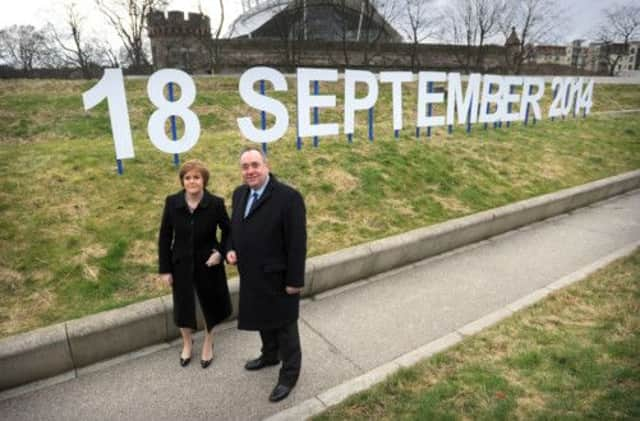Blair Jenkins: Scotland’s chance for equal society


This process of careful deliberation has already begun. Last week I spoke at the Scottish Assembly for Tackling Poverty and then the Glasgow Disability Alliance – two events focusing on equality and opportunity in Scotland.
At both gatherings the threatening context was the terrifying changes that are taking place in our welfare and benefits provision. We don’t know what the cumulative effect will be of the bedroom tax and all the other cuts being imposed on our support systems, and nor do the people who dreamt them up. This is a reckless social experiment aimed at our most vulnerable and deserving.
Advertisement
Hide AdAdvertisement
Hide AdI think most Scots have been very unhappy at the kind of society we have become within the UK – where our collective sense of shared responsibility has been damaged for decades by a harsh political climate pitting groups against groups and individuals against individuals. The current assault on the basic living standards of poor and disabled people is just the latest in a long line of unfair and unjust policies engineered in London and endured in Scotland.
I believe the independence referendum is a chance to reset our society, to reassess our values and our priorities, to re-imagine Scotland as the kind of country we know it can be.
Curiously and unexpectedly, I found myself at one with God last week. In this instance, the higher authority was not divine, but rather Lord Gus O’Donnell , the former head of the UK civil service. “God” was the acronym by which he was known to his staff. And the word of God was: “bonkers”. Not a word you might expect to be in common usage in the senior ranks of Whitehall. But now released from the disciplines of civil service niceties, Lord O’Donnell used it to describe aspects of the Westminster tax and benefits system.
I found myself agreeing not only with that but also with his assessment that with a “clean sheet of paper, we could do a lot better”. Given that Lord O’Donnell was speaking in Glasgow at the launch of a book called Scotland’s Future, it is reasonable to assume he was referring to Scottish independence.
People are now starting to contemplate what kind of country Scotland could be with that clean sheet of paper. It is a prospect worthy of consideration, not only by those already committed to an independent Scotland, but also by those currently opposed, those who are sceptical and the large number who have yet to decide. People just need to think about it.
Last week, the UK coalition’s Work and Pensions Secretary Iain Duncan Smith was also in Scotland to pose similar questions about welfare and taxes, but from an altogether different perspective. He was here to tell us, apparently, that an independent Scotland would not be wealthy enough or clever enough to manage our own welfare system. It should have come as no surprise to IDS, the architect of the current “reforms”, that his message was met with contempt and anger.
As the referendum debate has developed, it has become noticeable that few people – few credible people – now claim that Scotland would do anything other than prosper as an independent nation. Even Scottish Labour now openly admits that an independent Scotland could “hold its own”, whereas previously it conceded only that it could “survive”.
The No campaign’s portrayal of more than a trillion pounds worth of North Sea oil as a curse rather than an asset has been exposed as a weak deception; three days ago Vince Cable confirmed there was “a very positive future for the industry” and that he saw it as a “major resource”, supporting more than 400,000 jobs.
Advertisement
Hide AdAdvertisement
Hide AdMeanwhile, Duncan Smith blithely ignores the fact that pensions and social protection account for a smaller share of Scottish national wealth than they do for the UK, making our welfare state more affordable. One by one, the supposed barriers to independence collapse. As they do, the apprehension that inhibits so many of us starts to dissipate and the possibilities of an independent Scotland become more apparent. But, unable to construct a positive narrative, the No campaign will continue trying to build those roadblocks. And we will continue to move them out of the way of the Scottish people.
Given that most Scots are in favour of Holyrood having more control of decision-making, it must be clear that the only way to guarantee a more socially just Scotland is through independence. There are few certainties in life, whichever way we vote next year. But who can doubt that an independent Scotland, with our traditions and values and voting patterns, would provide a more supportive and caring environment for the vulnerable and the disenfranchised? «
• Blair Jenkins is chief executive of Yes Scotland
Twitter: @yesscotland